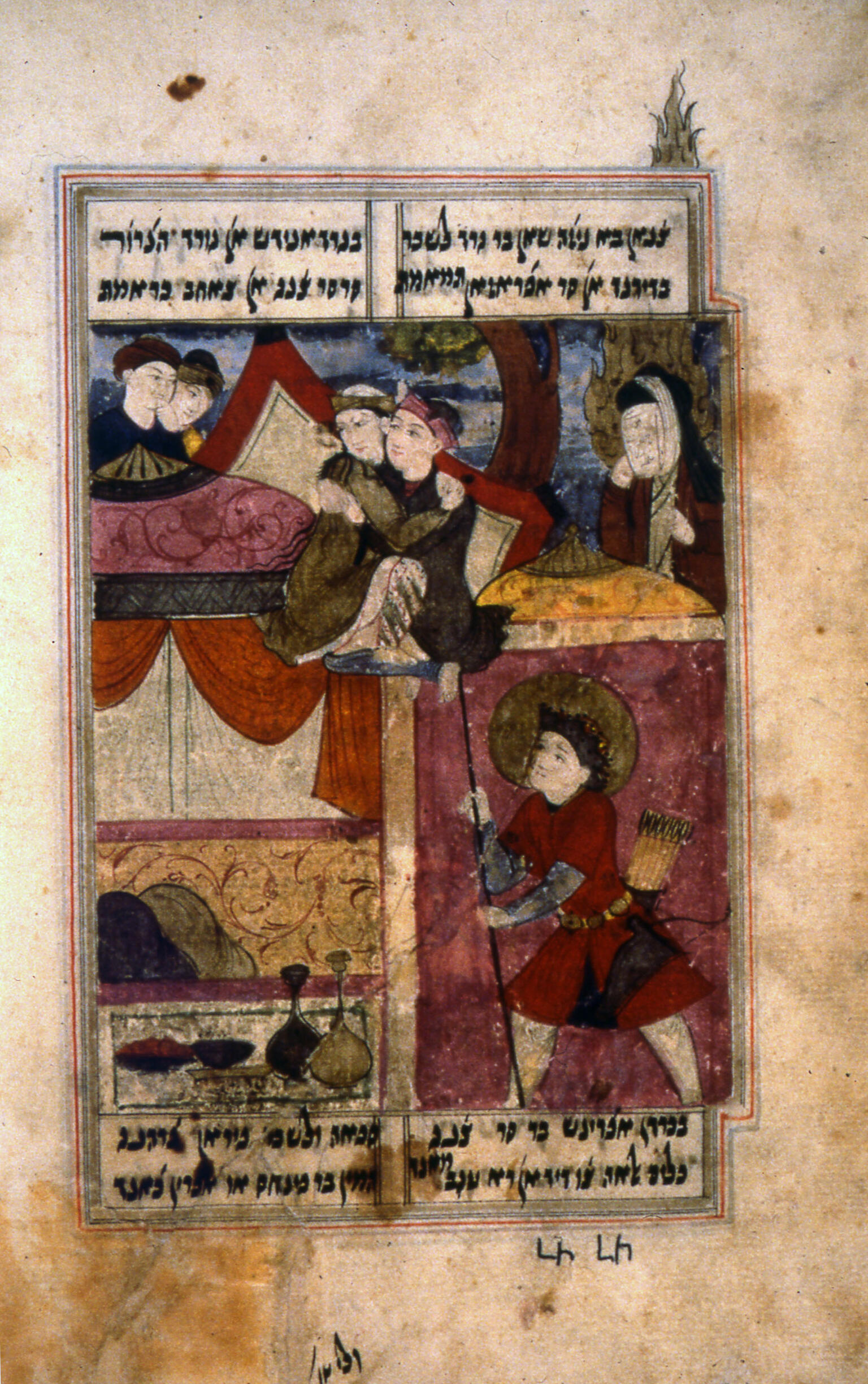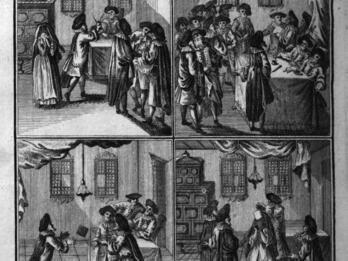Mūsā nāma (The Book of Moses)
Mowlānā Shāhīn-i Shīrāzī
Artist Unknown
1686

Creator Bio
Mowlānā Shāhīn-i Shīrāzī
Mowlānā Shāhīn-i Shīrāzī was a Judeo-Persian poet, known for poetic epics that retell biblical books in rhymed couplets, a form called masnavī: Bereshit-nāmah (Genesis), Musā-nāmah (the story of Moses), Ardashir-nāmah (Esther); and Ezra-nāmah (Ezra). His name, likely assumed, means “Our Master the Royal Falcon of Shiraz.” He lived in Īlkhānid Persia during the rule of Bahādur Abū Sa‘īd (1316–1335), for whom he wrote a panegyric.
Related Guide
Early Modern Jewish Languages
As Ashkenazi and Sephardi Jews migrated eastward, Yiddish and Ladino emerged as distinct languages. Both languages developed literary traditions, as print became more widespread.
Related Guide
Early Modern Literature and the Arts
Jewish literary creativity flourished in the early modern period, dominated by Hebrew poetry that blended religious themes with Renaissance forms.
You may also like
Fatḥ-nāmah (The Book of Conquest)



